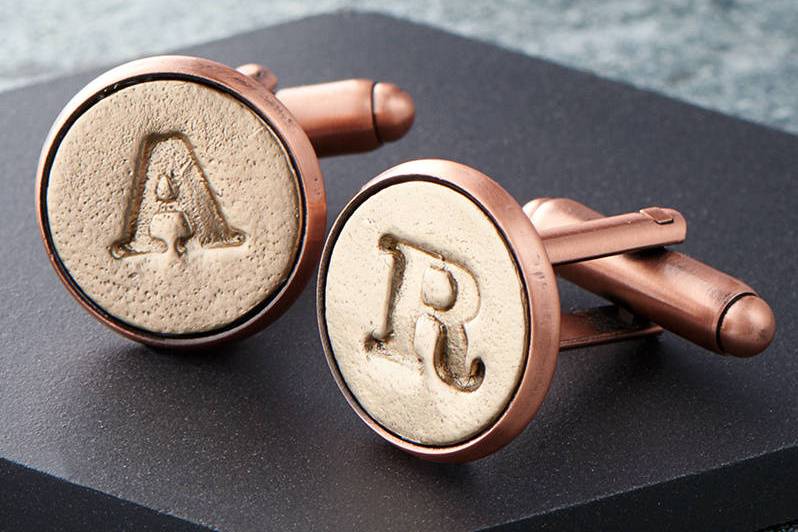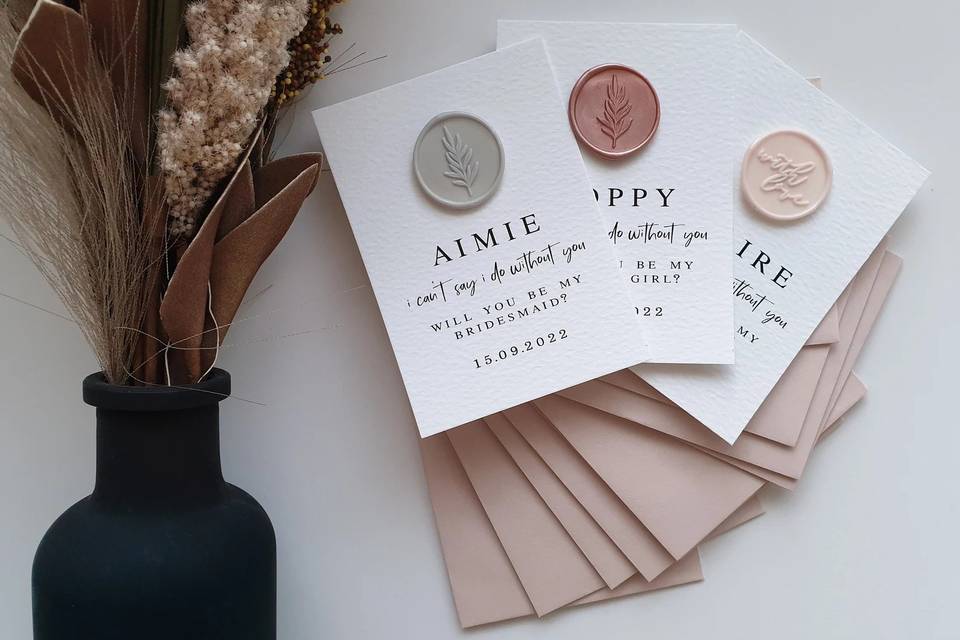Miss, Mrs, Ms: What’s the Difference and When Should You Use Them?
Getting married and wondering whether you’ll be Miss, Mrs or Ms? Hitched consulted an etiquette expert to demystify the name conundrum

If you’ve ever been to a hen do, you’ll likely have seen a ‘Miss to Mrs’ banner, normally in rose gold, strung up and ready for photo opportunities.
More than just a cute hen weekend detail, the name change decor is a reminder that traditionally, when women get married, they switch their title from Miss to Mrs. Sounds simple, right? It gets a little more confusing when you meet people who refer to themselves as Ms.
Men, as is often the case, have it easy – regardless of their age or marital status, their title is almost always Mr. - unless they’re a doctor, or maybe a Lord. And if you’re marrying a Lord, you’ll be Lady. In which case, congratulations. And can we come to the wedding?
Other than those of us becoming a Lady, we’re typically given one of three prefixes: Miss, Ms., and Mrs., and it can be hard to know the difference and when each one should be used.
There’s also the prefix of Mx, which is used by non-binary people The title Mx. applies to anyone who doesn’t identity as a he/him/Master/Mr. or she/her/Miss/Mrs.
Not to worry if you’re confused about which prefix to use when you’re married., we’ve got you covered on all things Miss, Mrs and Ms. Read on for your ultimate guide on when to use each.
What’s the Difference between Miss, Mrs. and Ms.?

According to tradition, “Miss” is the formal way of referring to an unmarried woman. “Mrs.” refers to a married woman. Ms can be used to refer to either, as well as someone who is divorced.
When to Use Mrs
Let’s start with the easiest prefix. “Mrs.” is the traditional and official title for a married woman. This is the case whether a woman chooses to change her name after marriage or not.
Many women prefer to keep their title as “Mrs.” if their spouse passes away or after divorce. If you’re unsure, it’s always best to ask. Some might switch to Ms, even if they keep their ex's name after splitting.
When to Use Miss
“Miss” is often used when addressing a young, unmarried woman, whether they’re engaged or not.
The only danger with using “Miss” is that there does become a point in a woman’s life when it might sound patronising. Some women might prefer to be referred to as “Ms.”, and that’s where the difference comes in.
“Miss is generally acceptable for young ladies under the age of 16,” notes Dr. August Abbott, JustAnswer’s on-demand Etiquette Expert. “It is never wrong to ask in a discreet tone: ‘I’m sorry, shall I call you Miss Mary or Ms. Mary?’” she adds.
When it comes to addressing more mature ladies, Dr. Abbott adds: “This choice is prudent when you know referring to a lady of advanced age as ‘Miss’ doesn’t fit the protocol.”
When to Use Ms.
“Ms.” has become a more popular option over the last few years, but it doesn’t indicate marital status which means it’s both a safe bet but also vague.
Generally speaking, if you’re not sure of a woman’s title, then “Ms.” is often the safest option.
Go on a case-by-case basis. If the woman is married but you’re still unsure, it’s not rude to ask as long as it's done politely.
When to Use Mx.
If you know someone who is non-binary, or you’re non-binary, Mx is the prefix to use.
If you’re unsure on your non-binary friends' prefix, Dr. Abbott says: “I believe that asking in a discreet manner would be the most polite way to know for sure.
“Respect what someone else may prefer to be called as they respect you. Isn’t there enough anger and judgement these days? To fuss over Master, Mr., Miss, Mrs, Ms. or Mx just seems so very small, doesn’t it?”
You pronounce Mx as 'Mix'.
Will I be Mrs. or Ms. After I Get Married?

This depends on personal preference. Typically, women who have just got married will change their title to “Mrs.”. It indicates their new and exciting marital status, and also points toward the fact that they’ve taken their partner’s surname. This is also the case if you’re double-barrelling your name after marriage.
If you are keeping your family name after marriage then you might like to go by “Ms.” instead, but you don’t have to. You could keep your own name but still change the prefix to “Mrs.”.
Similarly, regardless of whether you change your name, you can choose to switch to “Ms.” if you’d rather your title not be associated with your marital status at all. This might be the case for female teachers who don’t want their students to know they’re married. Basically, it’s totally up to you.
You can change your title (i.e. Miss, Mrs. or Ms.) at any time, and you don’t need a deed poll to do so. Of course, you have to be legally married to change your name to Mrs., but Miss and Ms. are interchangeable.
If you want to change your title, you simply need to inform organisations about your new title. This is because social titles like Mrs. and Ms. are not considered part of your name, nor are they used for identity purposes. The recognition of your title is just a courtesy.
Do You Have to Use Mrs When Married?
“Absolutely not!” says Dr. Abbott, reassuring us we can be Miss or Ms forever, if we so wish. “It’s a personal preference these days and nothing more,” she reassures.
Do You Become a Mrs. in a Civil Partnership?

Many women in same-sex relationships change their title to either Ms. or Mrs.
Which one they choose to adopt is totally up to them, although Mrs. seems to be the most popular. That said, female civil partners (whose title was Miss prior to their civil partnership) who feel Mrs. is not appropriate for them usually change their title to Ms.
If you and your partner choose a new surname for both partners or if you make one person’s surname a middle name for both partners, you can include a change of title declaration on your Deed Poll document.
If one of you will be taking the other’s surname and you both wish to change your title to Ms. or Mrs., the partner who is changing her surname should send a copy of their civil partnership certificate with a covering letter to the authorities, stating that she is also changing her title in addition to taking her partner’s surname. The partner who is not changing her name simply needs to write to record holders advising them that following her civil partnership, her title will be different.
Miss, Mrs. or Ms.: What Should I Write on Wedding Invitations?
Understanding the proper title etiquette is especially important when it comes to writing your wedding invitations. After all, you don’t want to offend anyone by not using their preferred title! If you’re unsure, follow these simple rules.
- If she’s a child, use Miss.
- If she’s a young, unmarried adult, go with Miss.
- If she’s an unmarried woman over the age of 30, go with Ms.
- If she is divorced or widowed, Ms is good
- If they’re non-binary, use Mx
- If she’s a married woman and you know her chosen title is Mrs., write that.
- If she’s a married woman, and you’re unsure on her preferred title, Ms. is often safest.
So there we have it! A whistle-stop tour of the differences between Miss, Mrs. and Ms. Just remember, if you’re ever feeling confused, the best thing you can do is ask. “It is never wrong to ask. It is always wrong to not answer,” says Dr. Abbott.
Still thinking about names? Here's our guide to changing your name after marriage.








